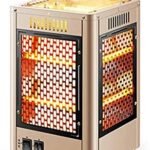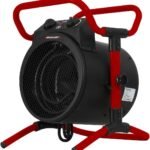Are you contemplating a switch in your home’s water heating system? The article “What Are Some Reasons To Use A Tankless Water Heater Over A Standard Storage-type Water Heater?” is just the resource you need. It sheds light on the remarkable benefits of using tankless water heaters. From energy efficiency to significant cost savings and unlimited hot water supply, you’ll discover a variety of eye-opening reasons why making the switch could be one of the best decisions for your household comfort and needs.
Energy Efficiency
When the conversation steers towards energy efficiency, your thoughts may not instantly turn to water heaters. However, your water heater consumes a significant amount of energy, and depending on the type you use, this could be having an undesirable impact on your energy bills and the environment.
Understanding energy efficiency in water heaters
Energy efficiency in water heaters is a measure of the amount of hot water produced per unit of fuel consumed over a period. High energy efficiency implies that your heater is able to generate more hot water with less energy, thereby lowering your energy usage and associated costs.
Why tankless water heaters are more energy efficient
Unlike standard water heaters, which continually heat and reheat water to keep it at a pre-set temperature, tankless water heaters only heat water as it’s needed. This way, they avoid the energy losses associated with maintaining a tank of hot water, making them up to 34% more energy efficient than their storage-type counterparts.
Comparative energy savings with tankless heaters
The energy savings with tankless water heaters can be substantial, particularly in homes that use a lot of hot water. The U.S. Department of Energy estimates that these systems can save a typical family more than $100 per year on utility bills. Over the lifespan of the unit, these savings can easily offset the higher upfront cost of tankless heaters.
Space-Saving Design
One of the standout features of tankless water heaters is their compact, space-saving design that gracefully replaces the bulky storage tanks of traditional water heaters and allows them to be installed in tight spots.
How tankless water heaters save space
Tankless water heaters, as the name suggests, don’t need a big storage tank. They are much smaller in size which leaves more room for other things in your house. This space-saving design can be particularly beneficial in smaller homes or apartments where space is at a premium.
Ideal scenarios for the compact design
The compact design of tankless water heaters makes them ideal for a variety of scenarios, including small apartments, condos, or houses with minimal storage space. They can also be a good choice for secondary water heating applications such as pool houses or guest bathrooms that may be far away from the main water heater.
The impact on home value
Switching to a tankless water heater can increase your home value. The small, modern design is a selling point for many homebuyers who appreciate the aesthetic appeal and space savings. Plus, the prospect of long-term energy savings can make your home more appealing to eco-conscious buyers.
Extended Lifespan
A longer equipment lifespan means less frequent replacement costs, and in this respect, tankless water heaters really shine.
Lifespan of standard water heaters
On average, standard storage-type water heaters have a lifespan of about 10 to 15 years. Various factors, like water hardness and maintenance, can speed up wear and tear and reduce this lifespan.
Lifespan of tankless water heaters
Tankless water heaters, on the other hand, can last more than 20 years when properly maintained. Their modular design allows for easy replacement of parts which can potentially extend their service life even further.
Maintenance factors affecting lifespan
Regular flushing to prevent mineral buildup, inspection of electrical components and gas lines, and annual professional maintenance can extend the life of either water heater. However, since tankless systems have fewer components that can fail over time, they typically require less maintenance than standard units.
Immediate Hot Water Supply
One of the biggest benefits of a tankless water heater is the ability to provide hot water on demand.
How immediate hot water is delivered
Tankless water heaters use a heat exchanger to quickly heat incoming water when you turn on the hot water tap. Instead of storing hot water and waiting for it to be used, these systems create it instantly, providing a continuous supply of hot water.
Benefits of continuous hot water supply
The primary benefit of a continuous hot water supply is the elimination of wait time for hot water. In addition, it virtually eliminates cold water sandwiches – those moments when your shower switches from hot to cold and then back to hot again when you’re using a storage tank heater.
Scenario of usage for immediate hot water
If you have a large family or high hot water usage, a tankless water heater could be a game-changer. Likewise, if you have a luxury bathroom with a deep tub or a multi-jet shower system, having the ability to fill them without running out of hot water can significantly enhance your experience.
Reduced Risk of Water Damage
Water damage from a failing water heater can be costly. Tankless systems alleviate this concern with their innovative design.
Potential water damage from storage tanks
Storage tank heaters, due to their large water capacity, pose a severe risk of water damage. A significant leak or a tank burst can flood your home causing structural damage and potential growth of mold and mildew.
How tankless systems minimize this risk
Tankless water heaters, without the large tank of water, significantly minimize the risk of severe water damage. They only heat the water you’re using, which means if a leak occurs, it will be much smaller and easier to manage.
Examples of water damage prevention
A tankless heater can save you from extensive repair costs and irreplaceable losses caused by water damage. For instance, if your water heater is installed near your electrical panel, a leak could be catastrophic.
Improved Water Purity
The quest for clean, pure water has probably never crossed your mind when considering a water heater. However, tankless systems offer an unexpected benefit in this area.
Quality of water in storage-type heaters
Storage-type heaters can collect rust and scale inside the tank, where the hot water you use for drinking and cooking is stored. Over time, the metal from the tank can also leach into the stored water, affecting its taste and quality.
How tankless heaters improve water purity
Tankless water heaters don’t use a storage tank, which means there’s no place for rust and scale to accumulate. As a result, the water they deliver is fresher and cleaner, leading to better taste and quality.
Health benefits of cleaner water
Cleaner water means better health. You can use and drink the water from a tankless water heater knowing that it’s less likely to contain harmful contaminants. In some tests, people have been able to detect a difference in taste between water from storage-type and tankless heaters.
Smart Technology Integration
In our smart-enabled world, it’s no surprise that even water heaters have hopped on the trend. This is an area where tankless systems far outshine traditional storage-type models.
Integration possibilities with standard heaters
While some newer storage water heaters have basic smart capabilities, their technology is not as advanced or as integrated as that of tankless models. Typically, the smart features on traditional heaters focus on energy-saving settings and leak detection alerts.
Smart features in tankless water heaters
Tankless water heaters, on the other hand, offer a wider range of smart features. In addition to energy-saving settings, you can expect features such as remote control via mobile apps, compatibility with home automation systems, performance tracking, and maintenance reminders.
Advantages of smart technology in water heaters
Having a smart water heater allows you to customize your water heating needs to match your lifestyle, leading to greater comfort and convenience. Additionally, smart features can provide data that can help you monitor your water and energy usage, enabling you to make informed decisions about your consumption habits.
Environmentally Friendly
Being green is a huge factor for many homeowners. If you’re among them, tankless water heaters have a lot to offer.
Carbon footprint of standard water heaters
Standard storage water heaters, especially older models, can contribute to higher carbon emissions because they have lower energy efficiency. They use more energy to keep a large volume of water hot all the time, which is not good for the environment.
How tankless heaters are more eco-friendly
Tankless water heaters use less energy and reduce standby heat loss, which makes them a more eco-friendly option. They could drastically reduce your home’s carbon footprint, particularly if you’re replacing a conventional high-consumption storage tank.
Relevance of green technology in modern homes
As people become more conscious about sustainability, green technologies and appliances are becoming more attractive and pertinent. Tankless water heaters are no exception. Choosing a tankless water heater is a step you can take towards creating a greener, more energy-efficient home.
Potential Cost Savings
Although the upfront cost of installing a tankless water heater may be higher, savings in operational costs over time can more than offset the initial outlay.
Operating cost comparison between the two heater types
A standard water heater that maintains a large tank of water at a consistent temperature can consume more energy, leading to higher operating costs. Conversely, the operation costs for a tankless water heater are generally lower due to their superior energy efficiency.
Analysis of long-term savings with tankless water heaters
Over the long term, the savings from lower operational costs and longer equipment lifespan can outweigh the higher initial cost of a tankless water heater. Estimates vary, but in general, you could save hundreds of dollars over the life of the unit.
Factors influencing cost-effectiveness
The cost-effectiveness of a tankless water heater can depend on several factors including the cost of fuel (gas or electricity) in your area, the number of people in your household, and your hot water usage habits. The more hot water you use, the quicker you’ll see the savings from a tankless system.
Rebates and Tax Incentives
As an added bonus, many utilities offer rebates and tax incentives to homeowners who install energy-efficient appliances like tankless water heaters.
Available incentives for storage-type heaters
While some incentives may be available for high-efficiency storage-type heaters, they tend to be less abundant and less generous than those for tankless systems.
Rebates and incentives for tankless water heaters
In many areas, homeowners who install tankless water heaters can benefit from substantial rebates and incentives. These can significantly offset the cost of the new unit and installation, making the switch to a tankless system much more affordable.
Financial impact of such incentives
When you add up potential energy savings, a longer equipment lifespan, and generous incentives, the financial case for tankless water heaters grows even stronger. For many homeowners, the total cost of ownership over the life of the unit can be lower than that of a traditional storage heater.









